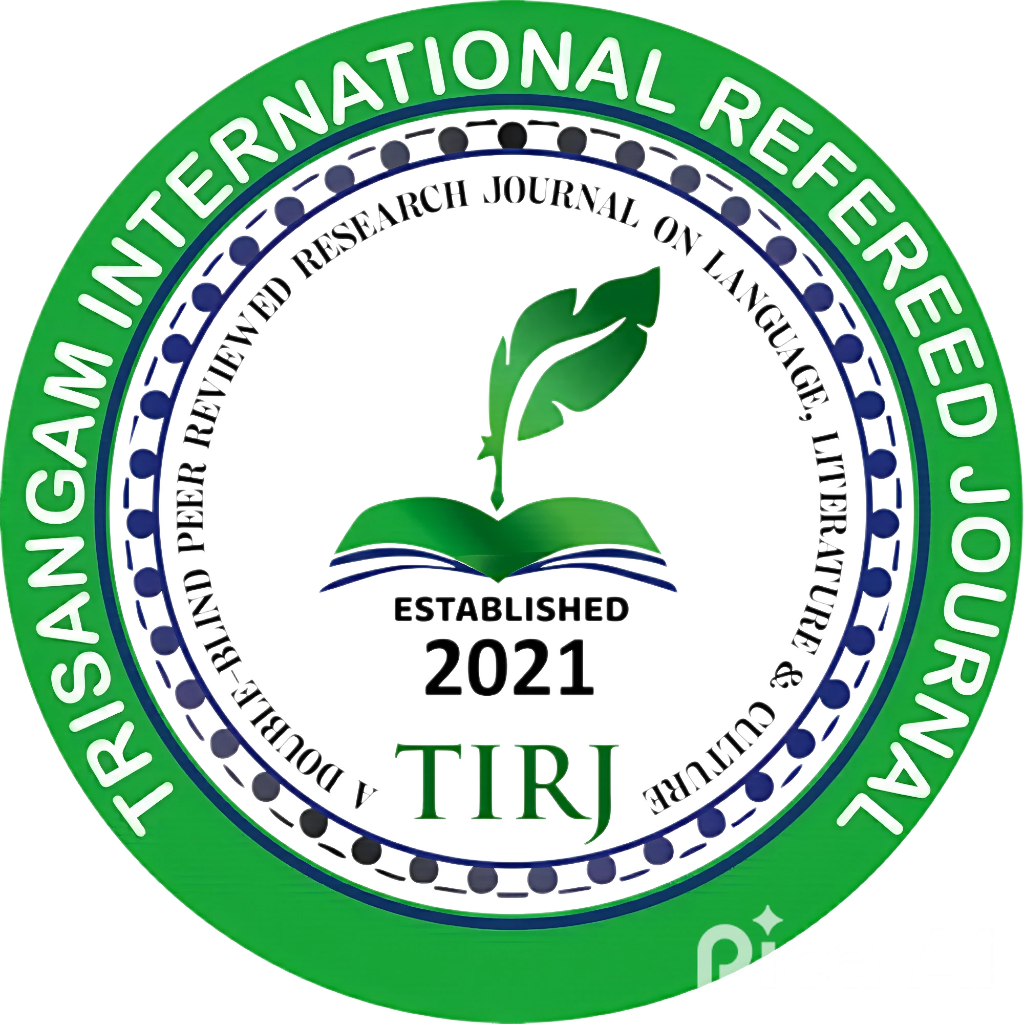The nature of Islamic literary practice in Bengali/ বাংলায় ইসলামী সাহিত্য চর্চার স্বরূপ
Keywords:
- Islamic Literature,
- Al-Quran,
- Tafser,
- Muslim Influence,
- Cultural Integration,
- Middle Ages,
- Modern Era,
- Literary Evolution & Persian-Arabic Influence
Abstract
The relationship between Bengali language and literature has been profoundly shaped by Islamic influences since the arrival of Islam in Bengal, which dates back to the Abbasid Caliphate during the 8th century. Although political dominance began in the 13th century with Ikhtiyaruddin Muhammad bin Bakhtiyar Khalji, Islam’s cultural and literary integration preceded this period. Early Islamic influence was subtle, with direct contributions becoming apparent only by the medieval era. Notably, Syed Sultan initiated Islamic themes in Bengali poetry, inspiring a renewed cultural identity among Bengali Muslims. Medieval Islamic literature was heavily poetic, drawing from Persian and Hindi romantic traditions, with figures like Shah Muhammad Saghir and Alawal contributing to themes inspired by the Quran and Sunnah. The 15th to 19th centuries saw a flourish in Islamic Bengali poetry, including religious praise and mystical narratives. The advent of modern Islamic literature marked a shift towards prose, reflecting the socio-political changes brought by colonial policies. Prominent figure personality like, Mir Mosharraf Hossain and Syed Nuruddin enriched Islamic literature through works on the Prophet’s life, historical narratives, and social commentaries, integrating modernity while preserving Islamic essence. In the 19th and early 20th centuries, Islamic literature adapted to address challenges posed by Christian missionary criticisms. Notable figures like Sheikh Abdur Rahim pioneered biographical and theological works, including Bengali translations of the Quran. This era marked a synthesis of traditional values and modern aspirations, underscoring the dynamic evolution of Islamic literary expression in Bengal.
Downloads
References
১. মোশাররফ হোসেন খান (সম্পাদনা), বাংলা ভাষা ও সাহিত্যে মুসলিম অবদান, বাংলাদেশ: ইসলামিক সেন্টার, প্রথম প্রকাশ জুন ১৯৯৮, প্রসঙ্গকথা দ্রষ্টব্য।
২. মুজীবুর রহমান ড.মুহাম্মদ, বাংলা ভাষায় কুরআন চর্চা, ঢাকা, ইসলামিক ফাউন্ডেশন বাংলাদেশ, ১৯৮৬, ১ম সংস্করণ, পৃ.২৮-২৯
৩. মতিউর রহমান মুহাম্মদ, বাংলা সাহিত্যে মুসলিম ঐতিহ্য, বাংলাদেশ ইসলামিক সেন্টার, প্রথম প্রকাশ ফেব্রুয়ারি, ২০০২, পৃ. ১৩-১৭ বৌদ্ধধর্মতত্ত্ব বিষয়ক প্রহেলিকাময় চর্চাগীতি এ যুগের সাহিত্যিক নিদর্শন।
৪. আবদুস সাত্তার, বাংলা সাহিত্যে মুসলিম প্রভাব, মশাররফ হোসেন খান (সম্পাদনা), বাংলা ভাষা ও সাহিত্যে মুসলিম অবদান, বাংলাদেশ: ইসলামিক সেন্টার, প্রথম প্রকাশ জুন ১৯৯৮, পৃ. ২৭৪
৫. প্রাগুক্ত, পৃ. ২৭৫
৬. ‘Bengal’, Encyclopedia of Islam, I (Leyden, 1913). 696: “India”, Encyclopedia of Islam II (Leyden, 1927) P. 479; আনিসুজ্জামান, মুসলিম-মানস ও বাংলা সাহিত্য, (ঢাকা: বাংলাবাজার, চারুলিপি প্রকাশন৩৮/৪), ফেব্রুয়ারী, ২০১২, পৃ. ৩৯
৭. আবদুস সাত্তার, বাংলা সাহিত্যে মুসলিম প্রভাব, মোশাররফ হোসেন খান (সম্পাদনা), বাংলা ভাষা ও সাহিত্যে মুসলিম অবদান, পৃ. ২৭৫
৮. আবদুস সাত্তার, বাংলা সাহিত্যে মুসলিম প্রভাব, মোশাররফ হোসেন খান (সম্পাদনা), বাংলা ভাষা ও সাহিত্যে মুসলিম অবদান, পৃ. ২৭৬
৯. আনিসুজ্জামান, মুসলিম-মানস ও বাংলা সাহিত্য, পৃ. ২৯
১০. আনিসুজ্জামান, মুসলিম-মানস ও বাংলা সাহিত্য, ঢাকা, পৃ. ২৯
১১. Indian Education commission Report (1822) থেকে উদ্ধৃত, Sayed Mahmud, A history of English Education in India (Aligarh, 1895), P. 147
১২. প্রাগুক্ত
১৩. সেন, দীনেশ চন্দ্র, বঙ্গভাষা ও সাহিত্য, অষ্টম সং. কলকাতা, ১৩৬৫, পৃ. ৩৬৫
১৪. আনিসুজ্জামান, মুসলিম-মানস ও বাংলা সাহিত্য, পৃ. ১১৪
১৫. গরীবুল্লাহ সাহা ও হামজা ছৈয়দ, আমির হামজা, কলকাতা, ১৩৩৬, দ্বিতীয় বালাম।
১৬. আনিসুজ্জামান, মুসলিম-মানস ও বাংলা সাহিত্য, পৃ. ১১৪
১৭. প্রাগুক্ত, পৃ. ৩১
১৮. আহমাদ শরীফ (সম্পাদিত), পুঁথি-পরিচিতি, পৃ. ২১১; আনিসুজ্জামান, মুসলিম-মানস ও বাংলা সাহিত্য, পৃ. ১৫৮
১৯. শহীদুল্লাহ মুহম্মদ, ঊনবিংশ শতাব্দীর প্রথম মুসলমান গদ্য লেখক, ছাত্রী সংঘ বার্ষিকী, ঢাকা বিশ্ববিদ্যালয়, ১৩৫৭
২০. আবদুল মান্নান সৈয়দ, আধুনিক বাংলা সাহিত্যের বিকাশে মুসলমানদের অবদান, মোশাররফ হোসেন খান (সম্পাদনা), বাংলা ভাষা ও সাহিত্যে মুসলিম অবদান, পৃ. ৩০১; আনিসুজ্জামান, মুসলিম-মানস ও বাংলা সাহিত্য, পৃ. ১৮৫
২১. আনিসুজ্জামান, মুসলিম-মানস ও বাংলা সাহিত্য, পৃ. ২০২
২২. মুখোপাধ্যায় ভূদেব, জাতীয় ভাব-ভারতবর্ষে মুসলমান, সামাজিক প্রবন্ধ, ভূদেব রচনাসম্ভার, কলকাতা, ১৩৬৪, পৃ. ১০
২৩. মুজীবুর রহমান ড. মুহাম্মদ, বাংলা ভাষায় কুরআন চর্চা, পৃ. ৩৬
২৪. আনিসুজ্জামান, মুসলিম-মানস ও বাংলা সাহিত্য, পৃ. ২৩৯
২৫. মুজীবুর রহমান ড. মুহাম্মদ, বাংলা ভাষায় কুরআন চর্চা, পৃ. ৫৮
২৬. আনিসুজ্জামান, মুসলিম-মানস ও বাংলা সাহিত্য, পৃ. ২৪০, (চব্বিশ পরগণা জেলার বসিরহাট মহকুমার অন্তর্গত মুহম্মদপুর গ্রামে শেখ আবদুর রহিমের জন্ম হয়)
২৭. ইদ্রিস আলী মোহাম্মদ, এসলাম তত্ত্ব, মাহে নও, মে ও জুন ১৯৫৪
২৮. আবদুল অদুদড. মোহাম্মদ, বাংলা ভাষায় কুর’আন চর্চা : উৎপত্তি ও ক্রমবিকাশ, ঢাকা: বাংলাদেশ, আল-কুর’আন ইন্টারন্যাশনাল রিসার্চ একাডেমী, ২০০৯, পৃ. ১১৬
২৯. আবদুল অদুদড. মোহাম্মদ, বাংলা ভাষায় কুর’আন চর্চা : উৎপত্তি ও ক্রমবিকাশ, পৃ. ১৩০-১৩২
৩০. মুজীবুররহমান ড. মুহাম্মদ, বাংলা ভাষায় কুরআন চর্চা, পৃ. ৭৫
৩১. ড. মোহাম্মদ আবদুল অদুদ, বাংলা ভাষায় কুরআন চর্চা:উৎপত্তি ও ক্রমবিকাশ, পৃ. ৯৬
৩২. প্রাগুক্ত, পৃ. ১০০
৩৩. আনিসুজ্জামান, মুসলিম-মানস ও বাংলা সাহিত্য, পৃ. ২৬১
৩৪. আব্দুল আজীজ আল্-আমান, নজরুল পরিক্রমা, (কলকাতা: হরফ প্রকাশনী, ২৯ আষাঢ় ১৪০৭)






